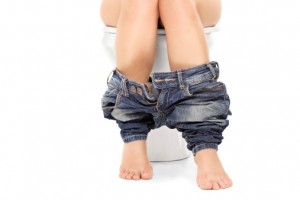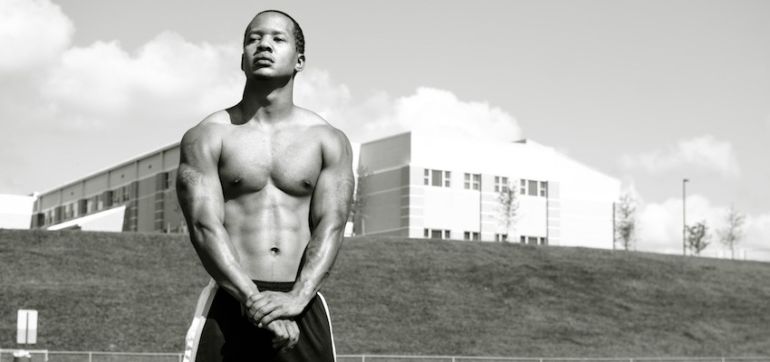Overactive bladder causes, treatments, and home remedies
 Overactive bladder, or OAB, affects about 15 percent of the North American population. People who have OAB find themselves using the bathroom eight or more times a day and can even have urge incontinence – involuntary loss of urine. Although it may appear that the older we get, the odds of us developing OAB increase, it really is not age-related. OAB occurs when contractions of the detrusor muscle – within the wall of the bladder – occur involuntarily. This, in turn, leads to more frequent trips to the bathroom.
Overactive bladder, or OAB, affects about 15 percent of the North American population. People who have OAB find themselves using the bathroom eight or more times a day and can even have urge incontinence – involuntary loss of urine. Although it may appear that the older we get, the odds of us developing OAB increase, it really is not age-related. OAB occurs when contractions of the detrusor muscle – within the wall of the bladder – occur involuntarily. This, in turn, leads to more frequent trips to the bathroom.
Causes of overactive bladder
If you’ve recently been diagnosed with OAB or think you may have it, here are some possible causes of your condition, which are not age-related.
Neurological disorders
If you already have a neurological disorder, it can bring on OAB. Such conditions include:
- Dementia
- Parkinson’s disease
- Multiple sclerosis
- Spinal injury
- Stroke
- Back problems (disc hernia, degenerative disc disease)
- Diabetic neuropathy
In these situations, the nerve signals that tell us when to go get disrupted. If trauma occurred during a surgery, OAB can be only temporary. But depending on the results of the surgery, it can be long-lasting as well.
Medications
Although medications are prescribed to help a condition, they can lead to other issues – such as OAB. Water pills, for example, are often prescribed for blood pressure to make sodium leave the system. In turn, they can cause a higher frequency of urination. Furthermore, pills containing caffeine also work as a diuretic and can make you visit the washroom more often, too.
Often, certain medications require you to drink more fluid, once again causing the symptoms of OAB. So if you’re finding your treatment is causing you to urinate more, speak with your doctor about possible alternatives.
Medical conditions
Similar to neurological disorders, preexisting medical conditions can also bring on OAB. This scenario involves treating the underlying condition to lower the OAB symptoms. For example, diabetes can cause nerve damage, which can once again disrupt the bladder’s response signals to the brain. If you can get your diabetes under control, you’ll find the symptoms improving. Other conditions that may cause an overactive bladder are kidney disease, bladder tumors, and urinary tract infections (UTIs).
In the case of UTIs, bacteria causes an infection, making the walls of the bladder more active. A UTI can easily be treated with antibiotics, so the OAB symptoms will subside soon after.
Diet
Your diet is an important aspect in controlling your OAB. If you’ve been diagnosed with overactive bladder, you should steer clear of acidic foods like tomatoes and oranges, curb your intake of caffeine and alcohol, stay hydrated, and get enough fiber.
Taking in adequate fiber is important for OAB treatment because without fiber you can develop constipation, which creates a blockage for bladder outflow.
Also, maintaining a healthy weight is ideal for preventing obesity-related OAB symptoms. So enjoying a balanced diet with essential nutrients is not only crucial for our overall health, but quite beneficial for our bladders as well.
Foods to avoid with an overactive bladder include caffeinated foods and beverages, alcohol, spicy foods, citrus foods and beverages, carbonated foods, milk and milk products, sugar or honey, and artificial sweeteners.
Foods that are good to enjoy with an overactive bladder include non-citrus fruits, grains, legumes, and vegetables.
Causes of overactive bladder in men and women
Overactive bladder affects women more men, but men are not immune to this condition. Causes of overactive bladder in men include an enlarged prostate, a bladder obstruction, stroke, Parkinson’s disease, as well as drinking too many fluids or taking certain medications.
Causes of overactive bladder in women include neurological disorders, high urine production due to high fluid intake, medications, urinary tract infections, abnormalities of the bladder, excessive consumption of caffeine or soda, declining cognitive function, incomplete bladder emptying, and constipation.
Overactive bladder treatment and home remedies
Whether or not you have an overactive bladder, you need to keep your bladder health in mind and take good care of it. Here are some tips to keep your bladder healthy:
- Never hold in your urine for too long as it can damage your nerves that send a response to your brain instructing you when to go.
- Stay hydrated so your body can expel toxins and bacteria to avoid any future UTIs.
- Perform Kegel exercises. This involves squeezing and relaxing the pelvic floor muscles to maintain bladder control.
- Quit smoking as it irritates the bladder.
By following these bladder-friendly tips and being aware of the causes of an overactive bladder, you can ensure your bladder stays healthy for many more years to come. Now that’s peace of mind.
Your overactive bladder is robbing you of this…
Ever find yourself bolting to the closest bathroom because you’ve just got to go? Roughly 13 million people have some sort of bladder-related problem, including the urgency to go. This condition is called overactive bladder (OAB) and it can wreak havoc on your life. Continue reading…
-
Will I Lose Weight Simply With The Slim Weight Patch Diet?
There is no easy route to losing the flab. It takes a lot of disciplin
-
Emotional Eating - Did Cinderella Have A Good Press Officer?
I’ve always been biased against Cinderella. Mainly because I
-
Ways To Burn and Reduce Your Calories
Most Americans struggle with weight gain
-
Be Careful About Using Weight Loss Laxatives
by Emily Schwartz Many slimming teas today contain weight loss laxativ
-
Factors To Consider When Choosing Weight Loss Programs In West Hills.
With so many weight loss programs in West Hills to choose from it is
-
Weight Loss Steps To Success
Obesity has become a serious epidemic in the United States and worldwi
- DON'T MISS
- Drinking Water For Weight Loss
- Limiting Beliefs and Weight Loss: Five Limiting Beliefs That May Be Holding You Back
- Top Weight Loss Techniques - Different Ways To Burn Fat
- How To Shed Your Extra Weight For Good
- All These Suggestions Should Help With Arriving At Weight Loss Goals
- Easy Weight-Loss – Weight Loss Tricks – Weight Loss Tips
- The Reason Why Slimming Patches May Be Your Perfect Ally For Successful Weight Loss
- How Kindness Can Help You Lose Weight
- What Is Belviq, the New Weight Loss Drug?
- Get Rid Of Love Handles Quickly




